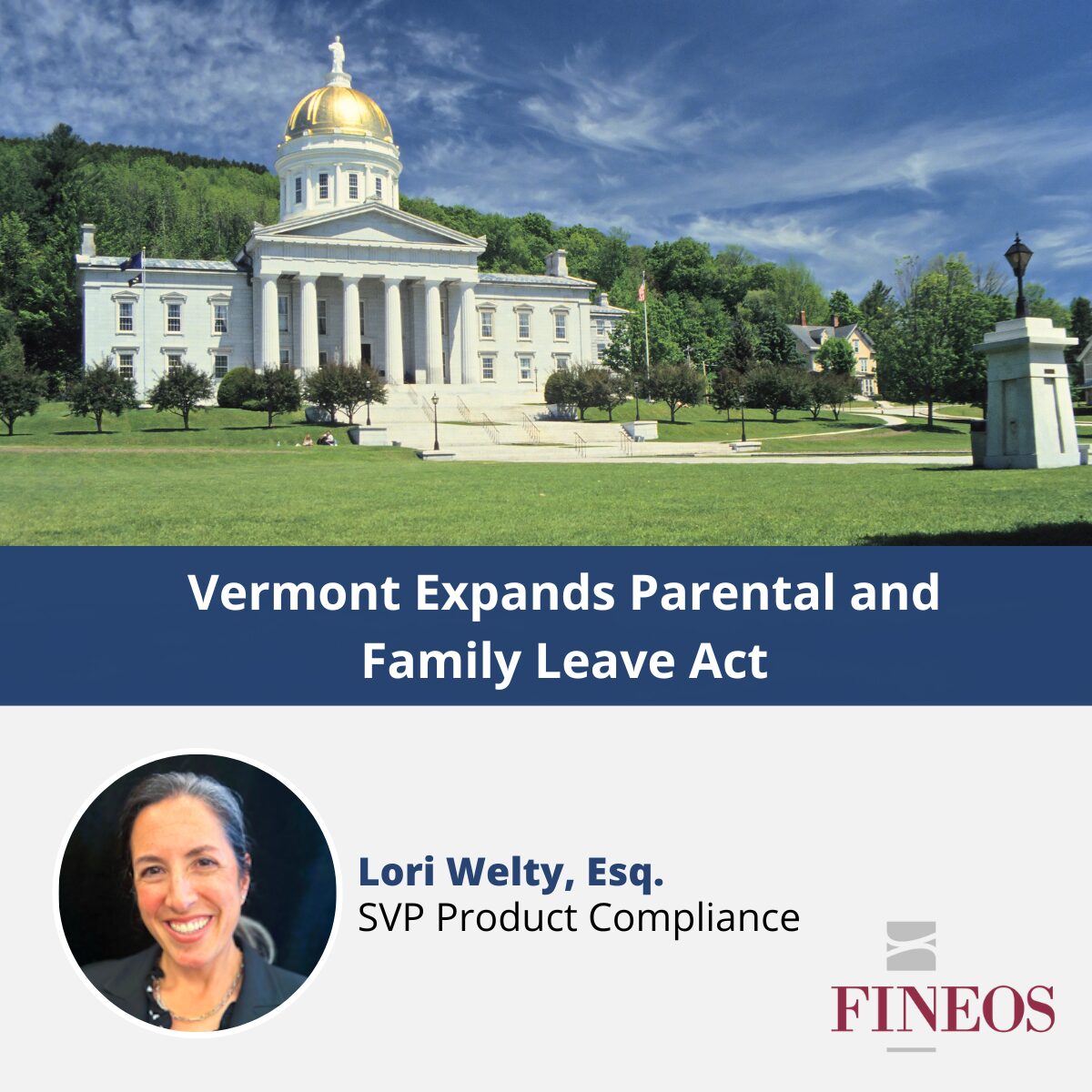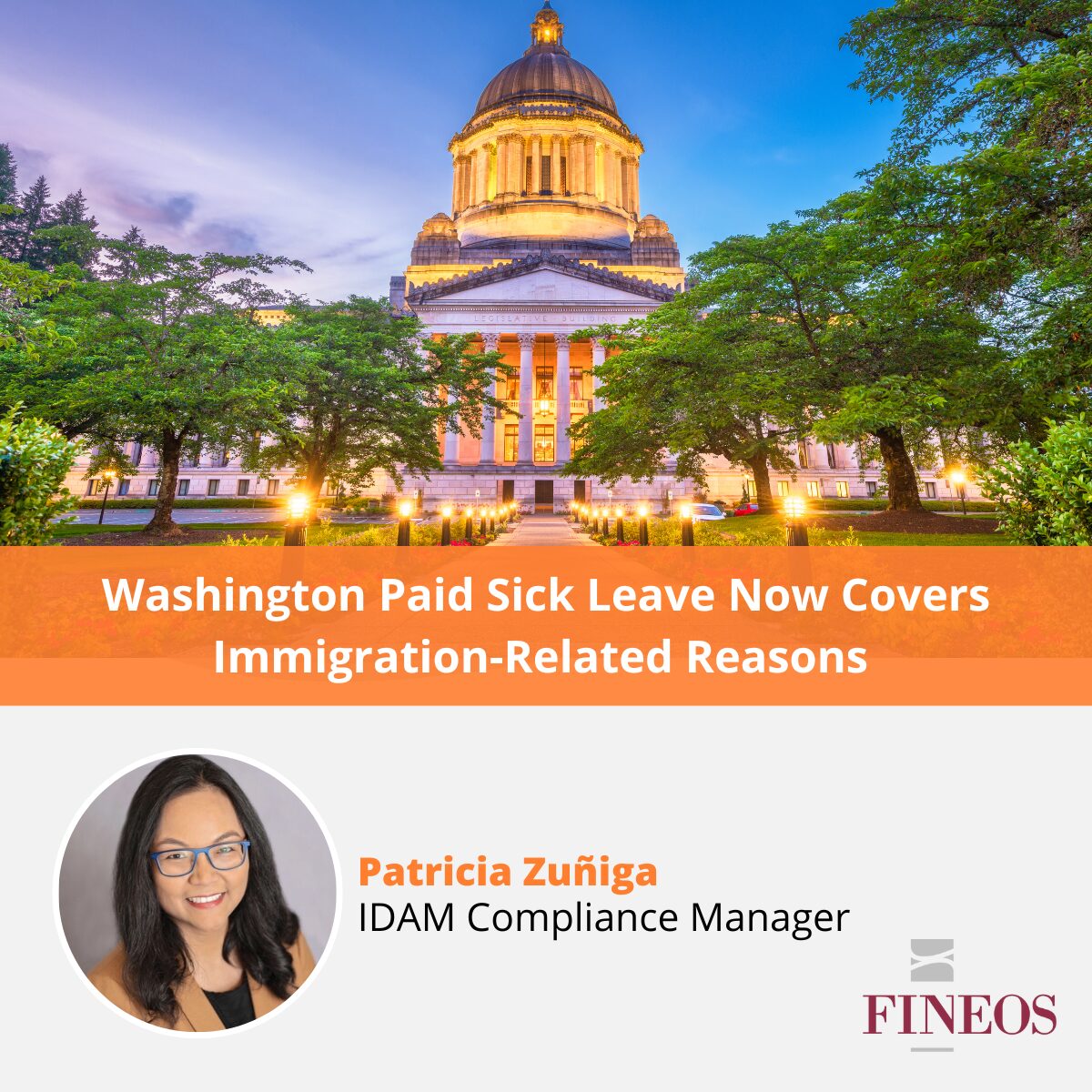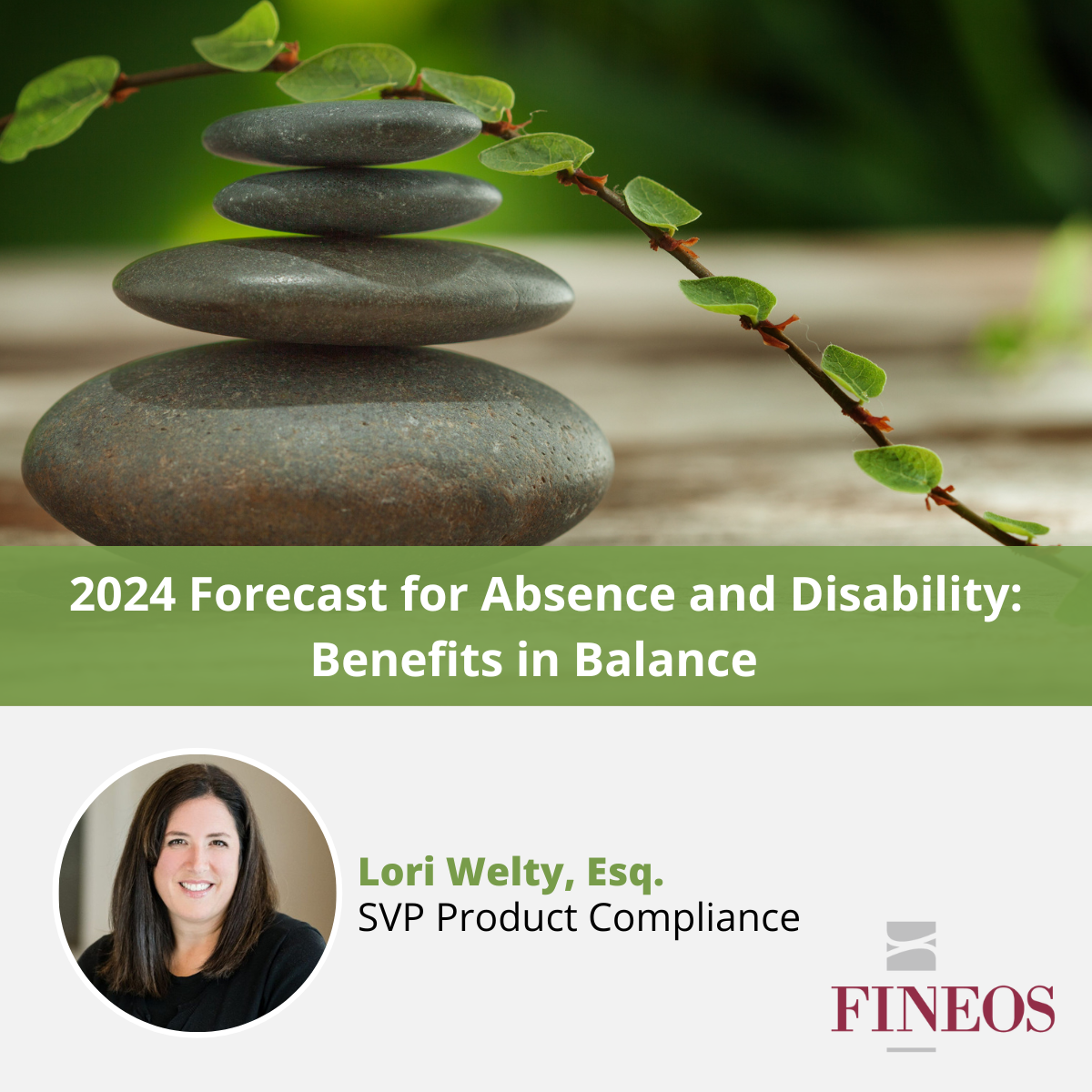Insurance carriers and employers need agile absence management software to adapt in real time when new leave legislation goes into effect. In this blog, you’ll learn about the latest updates to leave and accommodation laws in Washington and how FINEOS is helping carriers and employers remain in compliance.
On May 17 and May 20, four bills were enacted in Washington state, making changes to the existing Washington Paid Family & Medical Leave program, Washington Pregnancy Accommodation law, and Washington Victim of Crimes law. Read below to learn about key aspects of the changes:
WA Crime Victim Leave and Accommodation Law: Washington Senate Bill 5101 signed on May 20 and effective January 1, 2026, amends the state’s existing law providing leave and safety accommodations to victims of domestic violence, sexual assault, and stalking. The amendment adds a “hate crime” to the types of crimes entitling employees to leave and safety accommodations. A hate crime is defined as certain malicious and intentional offenses committed against a person because of the person’s race, color, religion, ancestry, national origin, gender, sexual orientation, gender expression or identity, or mental, physical, or sensory disability. Such offenses include, but are not limited to, offenses that are committed through online or internet-based communication.
WA Pregnancy Accommodation law: Washington Senate Bill 5217, signed on May 20 and effective January 1, 2027, amends the state’s Pregnancy Accommodation law to expand coverage from employers with 15 or more employees to employers of any size. The amendment further expands coverage to include any religious or sectarian organization not organized for private profit. Additionally, the amendment provides that an employee must be paid at the employee’s regular compensation rate for any break time to express milk and any time traveling to a location identified by the employer and employee to express milk. An employee cannot be required to use paid leave during break or travel time to express milk during work, and any break time to express milk is in addition to meal and rest periods otherwise required by law.
WA Paid Family & Medical Leave: Washington House Bill 1213, signed May 17 and effective January 1, 2026, makes substantial amendments to the states’ PFML program. A summary of key changes is provided below:
- Benefits: The minimum claim period to qualify for benefits is reduced from eight to four consecutive hours.
- Premiums. The method by which the ESD calculates the size of an employer for purposes of premium requirements and grant eligibility is modified. On September 30 of each year, the ESD must average the number of employees reported by an employer on the last day of each quarter over the last four completed calendar quarters.
- Employment Protection. The amendment modifies the requirement for employment protection.
-
- Employer Applicability for Job Protection: Previously, employees were required to work for an employer with at least fifty employees to be entitled to job protection. The amendment decreases this threshold over a three-year period, providing an eligible employee with protection if the employer has:
-
-
- 25 or more employees from January 1, 2026 to December 31, 2026
-
-
-
- 15 or more employees from January 1, 2027 to December 31, 2027
-
-
-
- 8 or more employees on or after January 1, 2028.
-
-
- Employee Eligibility for Job Protection:
-
-
- Previously, to be entitled to job protection an employee receiving benefits from state administration was required to have worked 1250 hours over the prior 12-month period, and an employee receiving benefits through a Voluntary plans was required to have worked 965 hours over the prior 9-month period.
-
-
-
- The amendment removes the minimum hourly thresholds and instead provides that all employees, regardless of plan type, must have begun employment with their current employer at least 180 calendar days prior to taking leave to qualify for job protection.
-
-
- Unpaid Leave:
-
-
- If an employee takes a period of unpaid leave protected by the Federal FMLA in which the employee was eligible for but did not apply for and receive WA PFML benefits, the employee is entitled to job protection under WA PFML, as long as the employer provides certain new written notices to the employee.
-
-
-
- For unpaid leave to count towards job protection rights, the employer must notify the employee in writing, detailing how the leave is counted against their entitlement under federal FMLA. The notice must also state that the employer is counting the unpaid leave towards maximum job protection periods provided under WA PFML. The notice must be provided within five business days of the request or start of federal FMLA leave (whichever is earlier), and at least monthly for the remainder of the employer’s designated 12-month leave year.
-
-
-
- If the employer provides the written notice, the employer can count the time that the employee took unpaid leave towards a maximum 16-week allotment (18 weeks if the employee suffers from certain pregnancy conditions). This is a different allotment than the existing allotment for WA PFML benefits.
-
-
-
- The designation of this time towards this 16 (or 18) week job protection allotment does not impact the employee’s eligibility for benefits in the WA PFML Program.
-
-
- Forfeiture of job protection. An employee loses the right to job protection if they do not return to work on the first scheduled workday after their leave ends, or after 16 (or 18) weeks of leave within a 52-week period. If the leave exceeds two continuous weeks or 14 intermittent days, the employer must provide the employee with at least five business days advance notice of the estimated end of their job protection rights and the date of the employee’s first scheduled workday.
-
- Employer notice requirement. The law expands the content of the PFML poster and the statement of employee rights that an employer must provide to their employees. Both the poster and statement of employee rights should include eligibility requirements, possible weekly benefits, application processes, employment protection rights, and nondiscrimination rights, and direct the employee to appropriate contacts and portals for more information.
-
- Health Care Coverage. The requirement for employers to maintain health care coverage is expanded; employers must maintain an employee’s health care coverage during any period of leave in the WA PFML program in which the employee is also entitled to employment protection.
-
- Small Business Grants, Outreach, and Enforcement: There are additional changes to the law in the areas of small business grants, outreach, and enforcement.
Note: Washington House Bill 1213 contained a provision requiring funding related to the amendment to be approved by the legislature by June 30, 2025 for the bill to become effective. Washington Senate Bill 5167, signed on May 20, contained the required appropriations.
FINEOS can help with your state leave programs
Using modern insurance technology solutions like the FINEOS Platform can help insurance carriers and employers remain compliant when leave legislation is revised and new leave programs are enacted by governing jurisdictions. Learn more about how a modern, integrated disability and absence management (IDAM) solution can help your organization adapt to this rapidly evolving market and remain in compliance.


